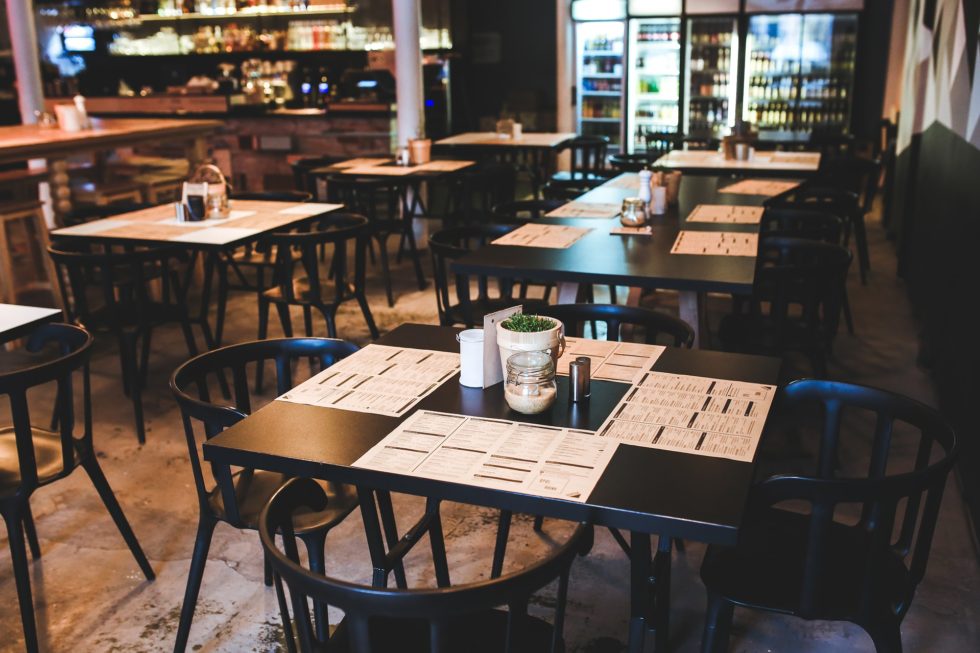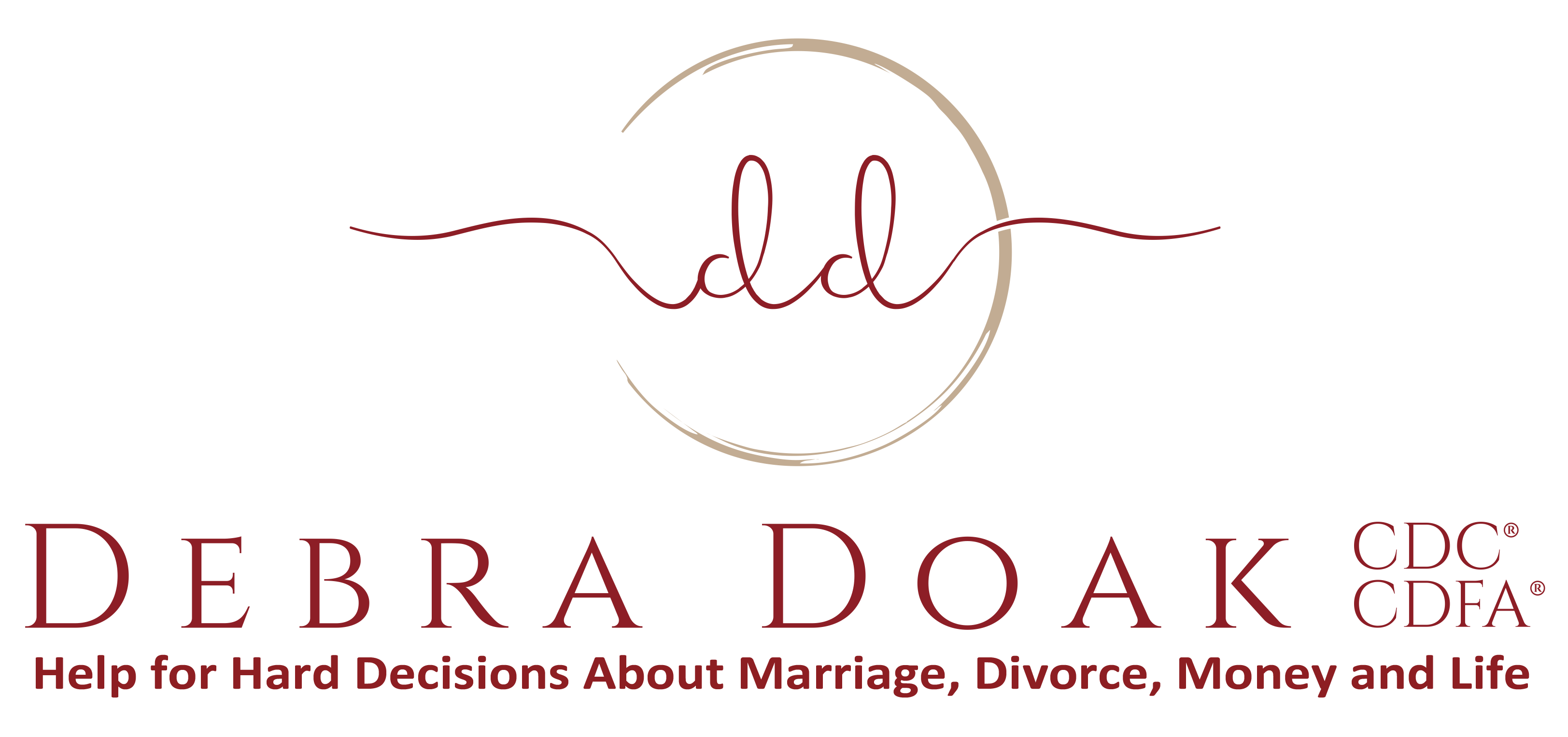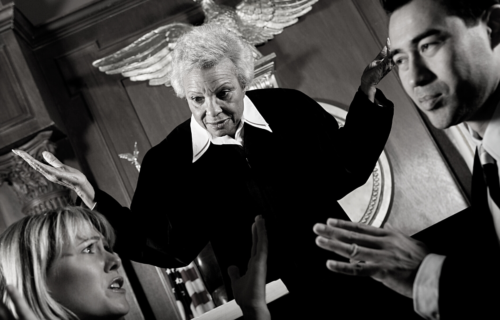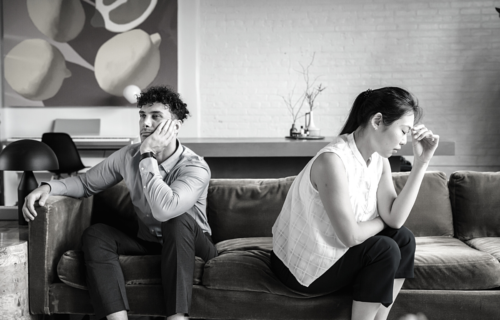
Why Are Hard Decisions So Hard?
A day is made up of hundreds of small decisions. What to wear, buy, eat, watch, or say. Burger or salad? NetFlix or Hulu? Sneakers or sandals?
For some people, most of these small, daily choices aren’t a big deal. For others, making decisions whether they’re big or small isn’t easy. And for some, any decision can be paralyzing. They agonize over what to do, going back and forth, and second-guessing themselves even after the decision has been made.
Various internet sources estimate that an adult makes about 35,000 decisions each day and researchers at Cornell University estimate we make 226.7 decisions each day just about food.
Have you ever gone out to eat with someone who takes forever to order? Or are you this person? I feel for them. What agony it must be to struggle so much over such a small decision.
And for them, the bigger the decision, the more agony they endure.
But, even for those of us that find most of life’s daily decisions pretty easy to navigate, there are still times when we get hit with those whoppers. Those truly hard decisions – the big, important ones that feel like we’ll ruin our life or someone else’s life if we choose wrong. The decisions where it seems like criticism, catastrophe, or failure awaits for we mess up.
Helping people make hard decisions is what I do for a living (curious? find out more about that here and here). As a divorce coach and a divorce financial analyst, I spend my days with clients helping them answer questions like:
- Should I stay or should I go?
- Can I trust my partner after they cheated?
- How am I going to tell my spouse and kids?
- Should I keep the house or move?
- Which parenting plan is better for the kids?
- Is this worth going to court over?
- Is this the best settlement agreement for me?
- Am I willing to give up this to get that?
- And so on
These are big decisions with big consequences and I’ve learned a little about the difference between the people who get paralyzed by big decisions and those who are able to make them and feel good about their choices.
Well, we have a tendency to think that choice is an “objective thing”. Just make a list of pros and cons and the answer will become clear. But it often doesn’t work that way. It’s really a very subjective thing. Otherwise, we would all likely make similar decisions and it would be a lot simpler.
There are a number of subjective factors that can affect our decision making. Here are just a few:
-
Strategy
How you decide to decide impacts the outcome. Are you impulsive, choose the most popular option, punt it to someone else, or take time to research and consult with others.
-
Baggage
Yep, that stuff you carry around from your childhood and past relationships – perfectionism, low self esteem, fear of failure, resentment, all or nothing thinking, and lack of self awareness – can all cloud your ability to make a clear, objective choice.
-
Heart/Head Battles
Your heart is asking “what do I want now?” while your head is wondering “what should I want in the future?” and therefore, they may disagree on the decision. I want pizza, but I should have kale salad.
-
Decision Fatigue
The more decisions you make, the harder each decision becomes. So as the day goes on and you make more decisions and wade through more information, your brain gets tired.
So, what can you do to up your decision making game?
I use a variety of tools and strategies with clients to help them stay focused and make the right choices. Here are a couple that can help you whether you’re going through divorce or just want to feel more confident and less stressed making decisions in other areas of your life.
1. Unclutter and Automate
Minimize decision fatigue so you can be in the best mental shape for important decisions.
You know we sometimes make fun of those people who have meatloaf every Tuesday or always do laundry on Wednesday, but maybe they know something we don’t. Steve Jobs wore a black turtleneck and jeans every single day. President Barack Obama did it. In an interview with Vanity Fair he said:
“You’ll see I wear only gray or blue suits,” [Obama] said. “I’m trying to pare down decisions. I don’t want to make decisions about what I’m eating or wearing. Because I have too many other decisions to make.”
In addition to reducing the number of decisions you have to make, you can minimize fatigue by reducing your options. Decision science has shown that people faced with a too many choices are apt to make poorer choices or no decision at all. We say more information is better, but when we have to juggle tons of data, that decision gets harder.
2. Shake Off Doubt
Believe in your your ability and find trusted advisors
If you’ve been through divorce or know someone who has, you know it can do a number on anyone’s confidence. The difference between those who dive and those who thrive after it’s over is building confidence. Ohio State University professor, Dr. Richard Petty, says
“Confidence is essentially the stuff that turns our thoughts into action”.
So confidence isn’t a state of being or something you are just born with like, wow she sure is confident. It’s more action-oriented. It’s only when you take risks, struggle, fail, and eventually master something that you create confidence. So it’s a feedback loop in a sense. Confidence helps you take action, and then the more you act, the more confidence you build.
That sounds like a catch-22.
Ah, but not when you have a strong support team. You need a ‘think tank’ of trusted-truth-tellers, subject-matter-experts, people who have a proven track record of decision quality and people who have 100% confidence in you. Then you’ll grow more confident, you will take action and you will make good decisions – and that all builds confidence
Do whatever you need to do to find your people. It will make all the difference!
Want More Help for Hard Decisions?
Let’s do it. If fear or indecision are holding you back from taking that next step, let’s chat. You can make hard decisions you feel good about – maybe you just need a little support.
Schedule a complimentary consultation and we can talk about the choices you’re facing and how coaching might help you take action, build confidence, and make even better future decisions.
Wishing you strength and wisdom,




